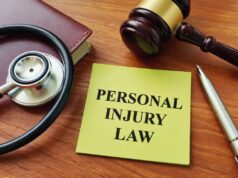When you’re injured in a car accident, your first instinct is to seek help and expect support — especially from the at-fault driver’s insurance company. After all, that’s what insurance is for, right? You assume the insurance company will step in, assess the damages, and cover your medical bills, lost wages, and other related costs.

But reality often tells a very different story.
If you’ve already been contacted by an insurance adjuster, you’ve likely realized that they are not working in your best interests. Insurance companies are not in business to help you — they are in business to make money. And one of the most effective ways for them to increase profits is to pay you as little as possible.
At Burnett & Williams, our experienced attorneys, Kimberly Raab and C. James Williams III, have spent decades representing injured Virginians and standing up to powerful insurance companies. We know their tactics — and more importantly, we know how to fight back.
In this guide, we’ll explain why insurance companies resist paying out claims, the common strategies they use to reduce or deny what you’re owed, and how you can protect yourself and your future.
Why Insurance Companies Push Back So Hard
Insurance companies, even those you’ve paid faithfully for years, are profit-driven corporations. They succeed financially by minimizing what they pay out in claims. That means they have every incentive to:
✅ Deny your claim outright — even when fault is clear.
✅ Undervalue your injuries and losses — often offering a lowball settlement early.
✅ Delay your claim unnecessarily — knowing that financial stress may lead you to accept less than you deserve.
What’s more, they have entire departments of adjusters, lawyers, and investigators whose sole job is to reduce the amount they pay out. Even your own insurance carrier is more focused on preserving profits than protecting your well-being.
Common Tactics Insurance Companies Use Against You
At Burnett & Williams, we’ve seen nearly every strategy in the book. Here are the most common and damaging tactics insurance companies use to protect their bottom line — often at your expense:
Calling You Immediately After the Crash
Within hours of your accident — sometimes even before you’ve received medical attention — an adjuster may call. Their friendly tone masks a strategy: they want to catch you off guard, confused, or still in shock. They’ll ask leading questions designed to get you to say something they can later twist against you.
Requesting a Recorded Statement
They may tell you it’s “just routine” or “part of the process.” But recorded statements can be used to undermine your claim. Even simple, innocent phrases like “I feel okay” or “I didn’t see the other vehicle” can be weaponized to suggest you weren’t injured or were partially at fault.
Offering a Quick, Low Settlement
You may receive a check or settlement offer within days — but be careful. These early offers are almost always far below what your case is truly worth. Many victims don’t yet know the full extent of their injuries, let alone future medical needs or lost income.
Dragging Out the Claims Process
Delays are intentional. Insurance companies know you may be struggling financially due to medical bills or time off work. They hope that by stalling, you’ll become desperate enough to accept a reduced offer just to get by.
Disputing Liability
Virginia follows one of the harshest systems in the country: contributory negligence. This means that if you’re found even 1% at fault, you could be barred from recovering anything (Virginia Code § 8.01-58). Insurance companies often try to use this to their advantage, shifting blame to you to avoid paying altogether.
Case Example: Robert’s Story
Robert, a delivery driver in Richmond, was rear-ended while stopped at a red light. The insurance company quickly reached out and offered $10,000 to “settle everything.” It sounded tempting — especially with bills stacking up.
But Robert wisely reached out to Burnett & Williams before signing. Attorneys Kimberly Raab and C. James Williams III conducted a thorough investigation. They uncovered the full extent of his injuries, including nerve damage that required months of physical therapy and impacted his ability to work.
Thanks to detailed preparation and aggressive negotiation, Robert received a six-figure settlement.
How You Can Protect Yourself
Standing up to an insurance company isn’t easy. But it is absolutely possible — especially when you have knowledgeable, experienced legal representation on your side. Here are the critical steps every accident victim should take:
Hire an Experienced Personal Injury Attorney
This is the single most important action you can take. At Burnett & Williams, we know how to deal with insurers, and we handle all communications so you don’t have to. Our team protects your rights while you focus on healing.
Never Sign Anything Without Legal Advice
Once you sign a release or accept a settlement, your case is likely over — even if new injuries or complications arise. An attorney can review any paperwork to ensure you’re not giving up your rights too soon or for too little.
Document Everything
A strong case is built on strong evidence. Keep detailed records of:
· All medical visits, bills, and prescriptions
· Time missed from work and lost income
· Personal experiences of pain, suffering, or emotional distress
Follow Your Doctor’s Advice
Failing to follow prescribed treatment — even missing appointments — can be used against you. Insurance adjusters may argue that you’re exaggerating your injuries or not taking your recovery seriously.
Collect and Preserve Evidence
Photos, videos, witness statements, and the police report can significantly bolster your case. Be sure to capture:
· The scene of the accident
· Damage to vehicles
· Visible injuries over time
Why Legal Representation Matters in Virginia
Virginia’s contributory negligence rule makes it even more important to have a skilled attorney on your side. Insurers know they can deny your claim entirely if you share any fault, no matter how small. That’s why they often try to twist facts or shift blame.
Our attorneys, Kimberly Raab and C. James Williams III, have successfully fought these strategies and recovered millions of dollars for accident victims across Virginia.

Final Thoughts: You Deserve Fair Compensation
Insurance companies are powerful, but they’re not unbeatable. With the right knowledge — and the right legal team — you can stand up to them and get the full and fair compensation you deserve.
At Burnett & Williams, we’re proud to fight for Virginians injured in car accidents. Attorneys Kimberly Raab and C. James Williams III are passionate about helping clients move forward with strength, dignity, and the financial security they need.
Don’t let the insurance company decide your future. Call us today at (804) 794-0080. Let’s fight for what’s fair — together. Local offices available in Richmond, Hopewell, and Chesterfield.
FAQs
Can I handle my insurance claim on my own?
Technically, yes — but it’s not recommended. Studies consistently show that people who hire an experienced personal injury attorney recover three to five times more compensation than those who go it alone. Insurance companies have teams of professionals working to minimize your payout — having someone in your corner levels the playing field.
What if the other driver doesn’t have insurance?
If the at-fault driver is uninsured or doesn’t have enough coverage, you may still be protected through your own Uninsured/Underinsured Motorist (UM/UIM) policy. These claims can be complicated, but our legal team has extensive experience handling them and can guide you through every step.
How much does it cost to hire Burnett & Williams?
There are no upfront costs to work with us. We operate on a contingency fee basis, which means we only get paid if we win your case or secure a settlement on your behalf. If we don’t recover compensation for you, you owe us nothing — it’s that simple.




